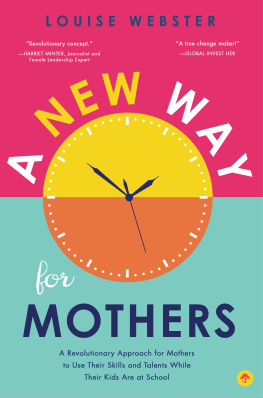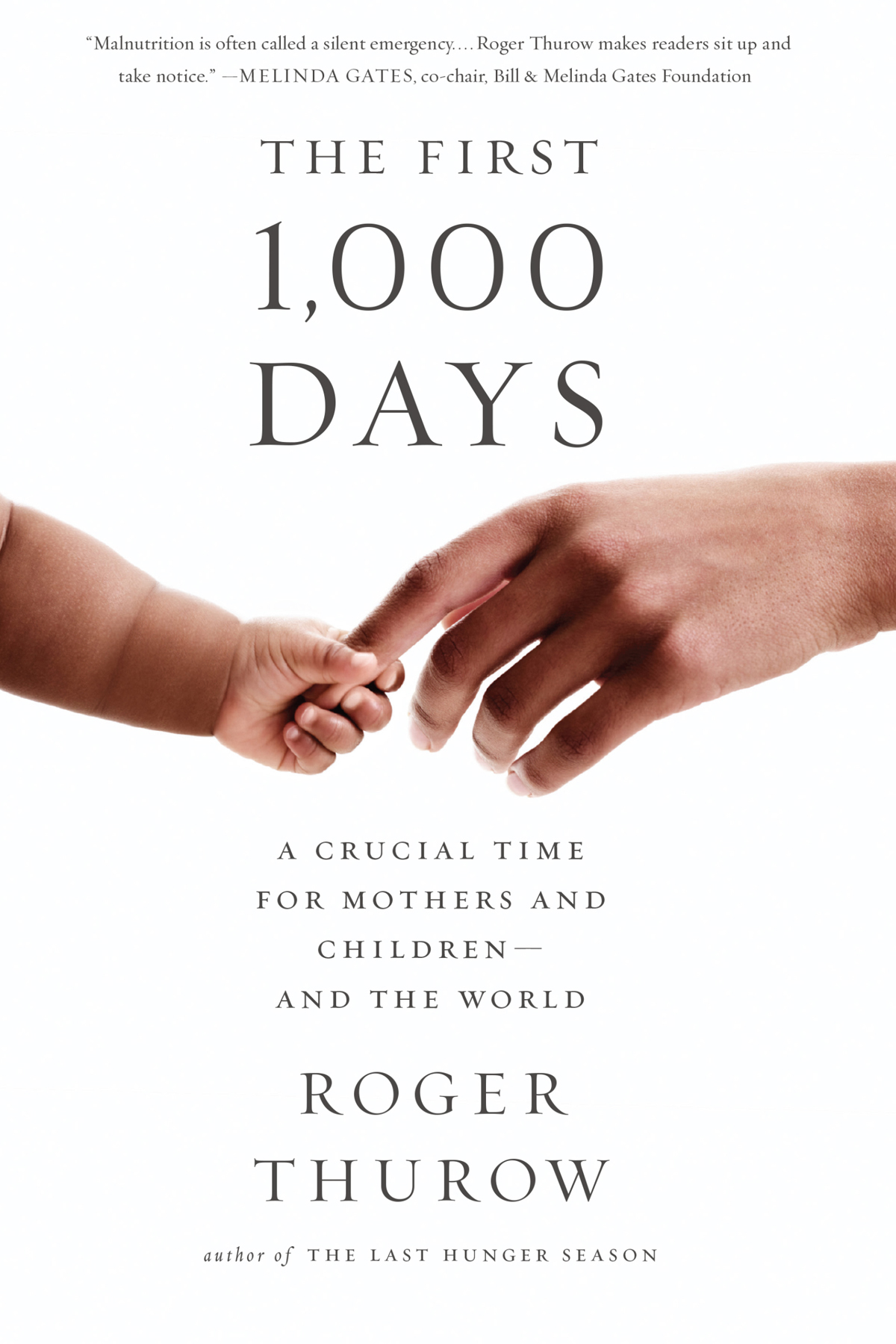Copyright 2016 by Roger Thurow
Epilogue and Reading Group Guide copyright 2017 by Roger Thurow
Hachette Book Group supports the right to free expression and the value of copyright. The purpose of copyright is to encourage writers and artists to produce the creative works that enrich our culture.
The scanning, uploading, and distribution of this book without permission is a theft of the authors intellectual property. If you would like permission to use material from the book (other than for review purposes), please contact permissions@hbgusa.com. Thank you for your support of the authors rights.
PublicAffairs
Hachette Book Group
1290 Avenue of the Americas, New York, NY 10104
www.publicaffairsbooks.com
@Public_Affairs
First Trade Paperback Edition: September 2017
Published by PublicAffairs, an imprint of Perseus Books, LLC, a subsidiary of Hachette Book Group, Inc.
The Hachette Speakers Bureau provides a wide range of authors for speaking events. To find out more, go to www.hachettespeakersbureau.com or call (866) 376-6591.
The publisher is not responsible for websites (or their content) that are not owned by the publisher.
Excerpts of the songs Dale Pecho and Dale Comidita are used with permission; credit: Anibal Coro, composer, and Internacionales Conejos (International Rabbits), performers.
1,000 Days is a trademark of 1,000 Days, a 501(c)(3) nonprofit organization. The 1,000 Days mark is used with permission from 1,000 Days.
Library of Congress Cataloging-in-Publication Data
Names: Thurow, Roger, author.
Title: The first 1,000 days : a crucial time for mothers and childrenand the world / Roger Thurow.
Other titles: First thousand days
Description: First Edition. | New York : PublicAffairs, 2016. Identifiers: LCCN 2015050285 (print) | LCCN 2016002750 (ebook) | ISBN 9781610395854 (hardback) | ISBN 9781610395861 (ebook) Subjects: LCSH: InfantsNutritionCase studies. | InfantsHealth and hygieneCase studies. | BISAC: FAMILY & RELATIONSHIPS / Life Stages / Infants & Toddlers. | PSYCHOLOGY / Developmental / Child. | FAMILY & RELATIONSHIPS / Parenting / General.
Classification: LCC RJ216 .T48 2016 (print) | LCC RJ216 (ebook) | DDC 618.92/02dc23
ISBN: 978-1-61039-817-6 (paperback); ISBN: 978-1-5417-6206-0 (library e-book)
E3-20170801-JV-NF
For Laura, Anne, May, and Moms Everywhere
Y OUR CHILD CAN ACHIEVE GREAT THINGS.
Two young women on opposite sides of the worldone in northern Uganda, one on the South Side of Chicagoheard these words and dearly hoped they could be true. Both were pregnant, five months or so, and anxious about doing their best for their first child. But greatness? It was an audacious thought, given their surroundings. Esther Okwir, a tall, lithe twenty-year-old, was fresh from the fields of her familys small farm in the bush outside the Ugandan town of Lira, where mere survival was a lofty achievement in a harsh climate for both agriculture and peace. Jessica Saldana, an athletic, scholarly teenager, was preparing to begin her junior year at one of Chicagos lowest-achieving high schools in an impoverished, worn-out neighborhood that too often, for too many kids, had proved to be a dead-end for ambition.
Esthers imagination soared as she sat on the concrete floor of a veranda stretching beyond the maternity ward of the local health post. She was joined by three dozen other moms-to-be and new moms. They crowded together under a tin awning, seeking refuge from a relentless noonday sun that pushed the temperature toward 100. Esther, barefoot, had walked a mile along the dirt road from her home to be there. She was grateful for the rest, the shade, the occasional puff of wind. Most of all, she was grateful for the lesson that began to unfold: a primer on maternal and infant health care.
This time is very important to you as mothers and to your children, began Susan Ejang, the midwife at the clinic and a mom herself. Despite the heat, she had wrapped herself in a white lab coat, believing it added authority to her words. The time of your pregnancy and the first two years of your childs life will determine the health of your child, the ability to learn in school, to perform at a future job. This is the time the brain grows most. This time, Susan told the moms, is precious and fleeting, just 1,000 days from the beginning of your pregnancy to your childs second birthday.
Susan knew what was at stake, for it is in these 1,000 days when stunting, mentally or physically or both, begins. In the second decade of the twenty-first century, one of every four children under the age of five in the world was stuntedabout 170 million children in total, according to the World Health Organization. That astonishing number included more than 2 million children in Uganda. A child who is severely stunted is sentenced to a life of underachievement: diminished performance in school, lower productivity and wages in the workplace, more health problems throughout life, and a greater propensity for chronic illnesses such as diabetes and heart disease as an adult. And that life sentence is most often rendered by the time a child is two. For stunting is largely the result of a debilitating mix of poor nutrition, unclean environments, and lack of caregiver stimulation during the 1,000 days.
So Susan hammered home her messages. Get good rest, she insisted. Dont stress. Get the required vaccinations for you and your child. Boil your drinking water. Wash your hands after every visit to the toilet. Cover your food to keep the flies away and to keep the parasites and bacteria out of your body. Sleep under mosquito bed nets to ward off malaria. Come to the clinic to deliver the baby. Breastfeed for at least six months. Dont even think about getting pregnant again for two years; you must focus on this child.
Esther and the women savored every morsel of advicenew and profound for themand murmured agreement. Yes, yes, they promised. They had grown up during the murderous madness of warlord Joseph Kony and his Lords Resistance Armyyears of terror when it was folly to think of potential greatness. But Kony was gone now and these moms wanted to believe that they could make a difference in the healthy, successful development of their children. They were eager listeners.
Now, Susan continued, this is most important. You must learn to eat a balanced diet and cook properly. She disappeared momentarily into the maternity ward, a cinder-block room sparsely furnished with several metal-frame beds covered by flimsy mattresses and threadbare sheets. It was here, in this clinic with no running water, no lights in the middle of the night, no modern medical equipment, where most of the women now gathered on the veranda would give birth. Susan returned carrying a stack of colorful posters featuring luscious foods and lists of the nutrients within them.
Vegetables, fruits, proteins, carbohydrates. Eggs, green vegetables, pumpkin, bananas. Do you have these things at home? Susan asked, pointing to the pictures of the foods. Yes, you have these things at home. They are all around us. You and your children need a mix of everything. Proper nutrition helps the body and the brain grow. It prevents stunting.
Zinc, folate, iodine, ironshe rattled off the vital nutrients, strange words to many of the mothers. A, B, C, D, Eshe recited an alphabet of essential vitamins, foreign letters to those moms who couldnt read.
Susan lifted a final poster for all to see. The importance of Vitamin A!, it proclaimed above a series of drawings charting the growth of a child from baby to toddler to robust boy playing soccer. If you eat foods rich in vitamin A, you will have active children like this one, Susan said. If you eat foods rich in iron, your children will be bright in class. All your children are important. Every one of them. You take good care in these days, and your child wont be malnourished. Your child can achieve great things.










